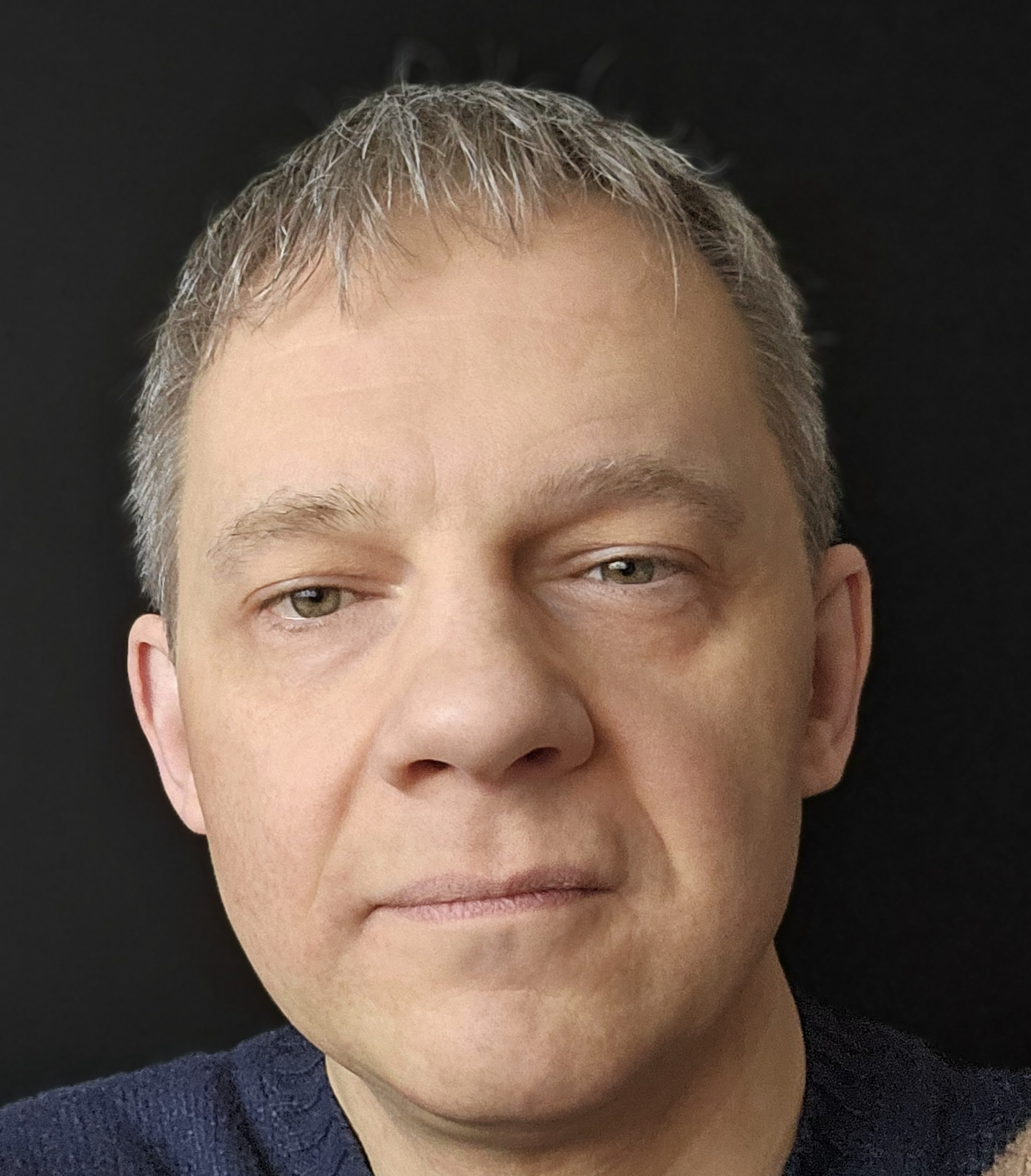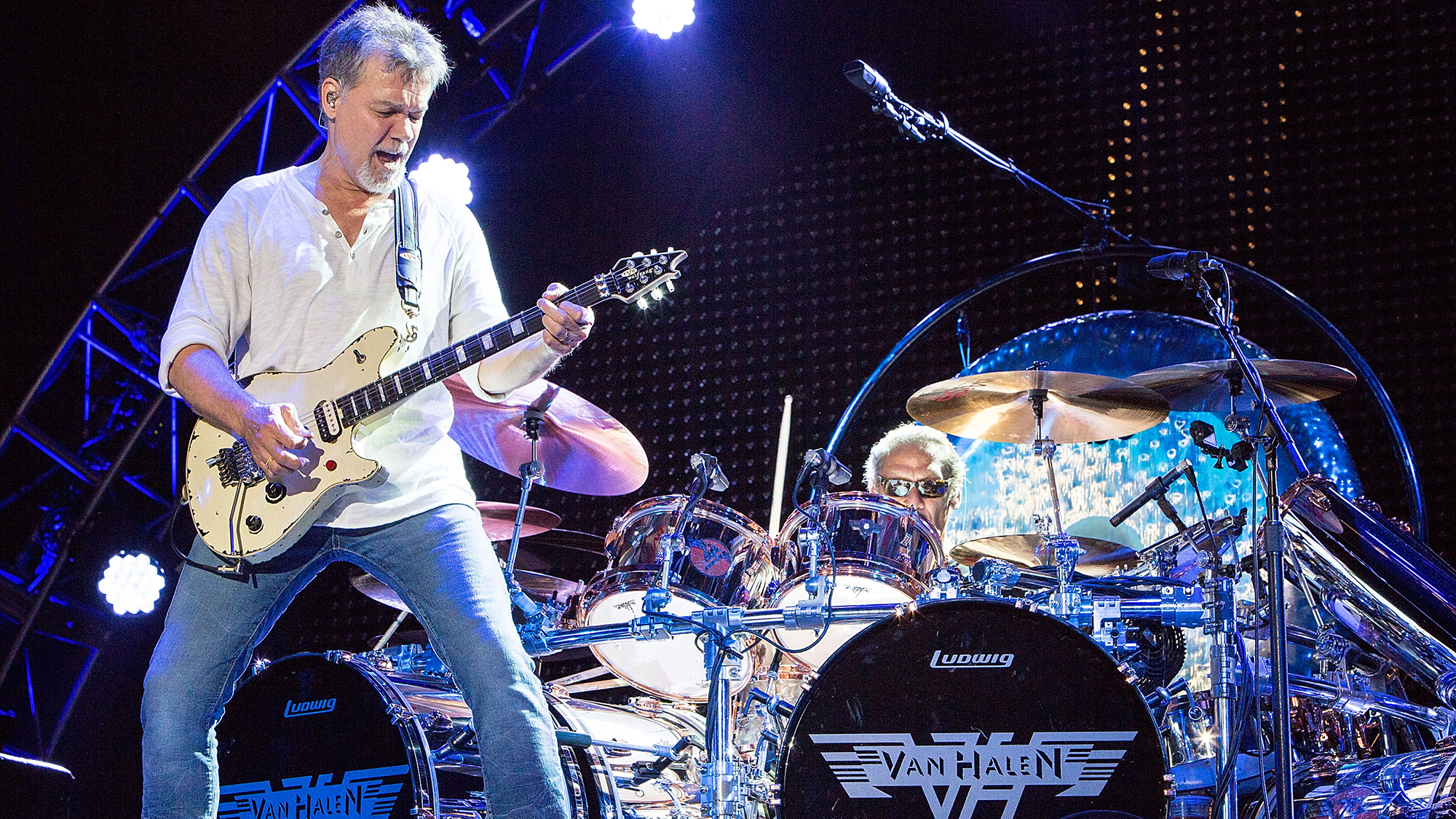Guthrie Govan: why I love guitar instrumentals
The Aristocrats and Hans Zimmer virtuoso on the art of a good instrumental, the limitations of vocals, and his favorite examples of the genre

All the latest guitar news, interviews, lessons, reviews, deals and more, direct to your inbox!
You are now subscribed
Your newsletter sign-up was successful
With the Aristocrats breaking cover with their breathtaking new collaborative album with Wojtek Lemański and the Primuz Chamber Orchestra, what better time to grab guitarist Guthrie Govan for a quick chat to unpack the majesty of the guitar instrumental?
The form is front and centre in Govan’s mind right now. And, as he explains here, it might be an art form that’s conducted with an electric guitar in hand but its range far exceeds the niche appeal of a single-instrument concern. Indeed, it can do what the vocal track cannot – clearing language barriers in a single bound, reaching a wider audience in the process.
Here, he talks about his approach to instrumentals, and some of his favourite tracks.
What is it about guitar instrumentals that appeals to you?
“Well, a guitar was the only instrument available in the house where I grew up, so naturally I spent my formative musical years learning how to operate it, simply because it was there.
“However hard I might try to think like a ‘musician’ rather than specifically as a ‘guitarist’, there can be no denying that the guitar will always serve as my main interface with the musical world in general, so I suppose it’s the voice I know best. Perhaps I naturally relate to guitar instrumentals in a more detailed or informed way, due to my familiarity with the range, timbre and capabilities of the instrument.”
What can an instrumental provide a listener that a vocal song can’t?
All the latest guitar news, interviews, lessons, reviews, deals and more, direct to your inbox!
“In a sense, it can offer a more universal appeal – when there’s no lyrical content in a song, the language barrier ceases to be a problem! I have fond memories of having performed instrumental music in some unusually far-flung and exotic locations and one thing I’ve consistently taken away from such experiences, is that the challenge of connecting with people suddenly feels refreshingly effortless as soon as I’m on the stage.
“Having spent the day dismally failing to explain to someone that I’m trying to exchange currency, figure out how the launderette works, order food or whatever, it somehow comes as a huge relief to start playing music and instantly feel a much more direct line of communication.”
Any tendencies with instrumentals that you aim to embrace or avoid?
“Whenever I think of rules like that, I’m reminded of that old Stravinsky quote: ‘My freedom will be so much the greater and more meaningful the more narrowly I limit my field of action and the more I surround myself with obstacles.’ While I do understand the logic of trying to focus your creativity by using restrictions to minimise any unnecessary or distracting decision-making, I’ve never really been able to make that approach work for me.
My entire writing process just seems to be a response to the basic question ‘What would I personally like to hear right now that I haven’t heard anywhere before?’
“In general, my entire writing process just seems to be a response to the basic question, ‘What would I personally like to hear right now that I haven’t heard anywhere before?’ So, anything goes, really. I just do my best to avoid regurgitating anything which has obviously been done already.”
Is a typical song structure – intro, verse, chorus, middle 8, outro, etc – always relevant for an instrumental?
“In terms of connecting with listeners, I think it can indeed be helpful to think in terms of a basic structure which will be familiar to them. Of course, any rule is worth breaking if you feel a genuine artistic justification for doing so.”
How useful is studying a vocalist’s approach for guitar melodies?
“I think that can be extremely useful, for (at least) two reasons. Firstly, thinking like a vocalist encourages you to incorporate breathing into your phrasing, and I sense that listeners always respond well when a melody has that human, singable quality.
If you’re thinking too much like a guitar player, there’s sometimes a danger of writing something purely because it sits comfortably within a scale shape
“Secondly, the mindset of trying to make your guitar ‘sing’ can often help to liberate you from the trap of allowing the fingerboard to dictate the melody for you. If you’re thinking too much like a guitar player, there’s sometimes a danger of writing something purely because it sits comfortably within a scale shape or because it resembles one of your favourite licks, rather than searching for notes which actually mean something to you.
“In terms of your audience, the ‘serious guitar player’ contingent might well be analysing the way your fingers are moving and evaluating which trick they would like to borrow first (trust me on this one!) but anyone else, subconsciously or otherwise, will be listening at least partially on the assumption that your guitar is trying to sing something to them.”

Do you have favourite keys or tempos?
“Certain keys are undeniably more guitar-friendly than others – a low, open E string makes a gratifying noise indeed and of course it’s not really possible to replicate that effect in all 12 keys – but I try not to let any of that influence my writing too much. For better or for worse, I don’t have perfect pitch so I’m not sure if any particular key speaks to me any more than its immediate neighbours. As for tempo, that’s generally dictated by whatever mood I’m trying to convey at the time.”
I really don’t have favourite tonalities: for me, making a new piece of music starts with the attempt to capture a certain mood, vibe, or emotion
Do you have any favourite modes?
“I really don’t have favourite tonalities: for me, making a new piece of music starts with the attempt to capture a certain mood, vibe, or emotion so I suppose the initial intention will determine many of the required note or chord choices. I’ve enjoyed a fairly diverse listening diet over the years so I feel equally open to both pretty and angular harmonic environments. I suppose I’ll just gravitate to one end of the spectrum or the other based on however I might be feeling at the time.”
What are your views on harmonising melodies on the guitar?
“I don’t really have any particularly strong views on that. Sometimes it’s fun to harmonise a melody and it’s certainly a 'dependable second verse' kind of strategy if you’re trying to maintain the interest level throughout a whole song structure.
“On the other hand, I often find myself playing live in relatively stripped-down settings (such as the trio format of The Aristocrats) so I’m probably a little wary of writing anything that might need a harmony part in order to sound good.
“In The Aristocrats, I’m probably guilty of writing overly complex bass parts to cover all of the harmonic ground, rather than defaulting to a ‘twin guitar’ tactic which I might not be able to replicate live.”
What three guitar instrumentals would you consider iconic, or have inspired you?
“For me, that’s actually two difficult questions rolled into one. An instrumental would need to move a lot of people before it could truly attain iconic status so I’m sure you would get a much clearer reading on that topic by conducting a readers’ poll instead of asking me.
“In terms of instrumentals that have inspired me personally, there are far too many too choose from so here are three random choices, each of which moved me a lot and had an impact on the way I think about instrumental guitar music: Apache by The Shadows, Emotions Wound Us So by Larry Carlton, and Blue Powder by Steve Vai.
“Apache was probably the first instrumental piece I ever learned to play on the guitar (I suspect a few of your readers may well have a similar story to share!) so I somehow felt duty-bound to include it here. The Larry Carlton ballad comes from the live album Last Night and I just have vivid memories of being startled by how much dynamic range Larry was managing to utilise throughout the course of the track. Also, I think that song might single-handedly have kickstarted my addiction to volume pedals!
Emotions Wound Us So might single-handedly have kickstarted my addiction to volume pedals!
“As for Blue Powder, that song was featured on a sound page vinyl giveaway in Guitar Player magazine and it was the first time I had heard Steve’s playing outside the context of Frank Zappa’s band, so it really was an ear-opener for a young, impressionable yours truly. Now that I come to think of it, it’s also a great example of a track breaking one of the rules we discussed earlier; there’s absolutely no semblance of a verse, chorus, bridge structure and yet there’s an undeniable logic to the way the track flows.
“As an afterthought: those were simply the first three tracks that popped into my mind but it does feel weird that Jeff Beck didn’t make an appearance so, by way of an unrequested bonus round, I hereby nominate Goodbye Porkpie Hat, Where Were You and Nadia. Hopefully no explanations will be required!”
- The Aristocrats With Primuz Chamber Orchestra is out now via Boing!

Jason Sidwell (BA Hons, MA, ALCM) was editor of Guitar Techniques, is senior tuition editor for Guitarist and has written/edited over 25,000 printed articles since 1998. He is an advisor/guest tutor for UK music academies, a director/tutor for the International Guitar Foundation (IGF) plus author of How to Play Guitar Step by Step (Dorling Kindersley) and tutorials for The Guardian and Observer. His unique Guitar Day UK teaching events have been running for over a decade. He is also a busy classical guitarist and theatre musician, has recorded with musicians such as Steve Morse, Paul Gilbert, Andy Timmons and Marty Friedman and has a broad cliental for studio guitar work.
